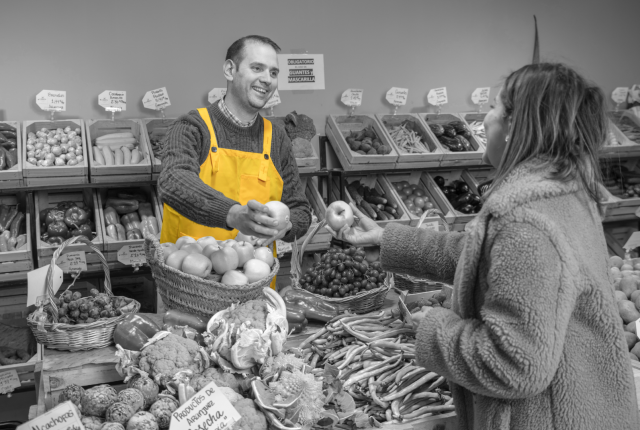
German prepositions with Akkusativ or Dativ (Wechselpräpositionen): List with lots of examples
Some place-determining prepositions in German are not faithful to a single case. These are so-called variable prepositions, or Wechselpräpositionen. Depending on the context, they combine with the accusative (Akkusativ) or…

Prepositions in German: German prepositions that require the use of Dativ, Akkusativ, and Genitiv
Prepositions in German is a topic that I unfortunately always skipped in my early days of learning German. Everything changed during one of my trips to Germany. When I got…

How to conjugate possessive pronouns in German
Possessive pronouns in German are pronouns that indicate possession or belonging. They usually come before a noun, for example mein Kind (my child). These types of pronouns vary depending on…

Possessivpronomen: What are possessive pronouns in German? Theory and examples
I was sitting together with my friend Sylvia in a coffee shop. We had agreed to work together that day. I was getting down to writing this article, and she…

Fruits and vegetables in German (Obst und Gemüse)
When I was still living in Germany, every weekend I would see the opening of the vegetable and fruit market through my window. It attracted quite a large number of…

Months and seasons in German (Monate und Jahreszeiten)
A few years ago, when I was still living in Germany, I went with friends to Oktoberfest. They told me that it was the biggest festival of the year and…

Traveling in German: holiday vocabulary in German that will come in handy on your trip
As a student of German philology, I spent every vacation in Germany. I wanted to brush up on my language skills, and I always believed that staying in a foreign…

Irregular verbs in the past tense in German: Three forms of the verb
In German we distinguish between two past tenses: Präteritum and Perfekt. The difference in meaning between these tenses is very small. In some cases, they can be used interchangeably (especially…



